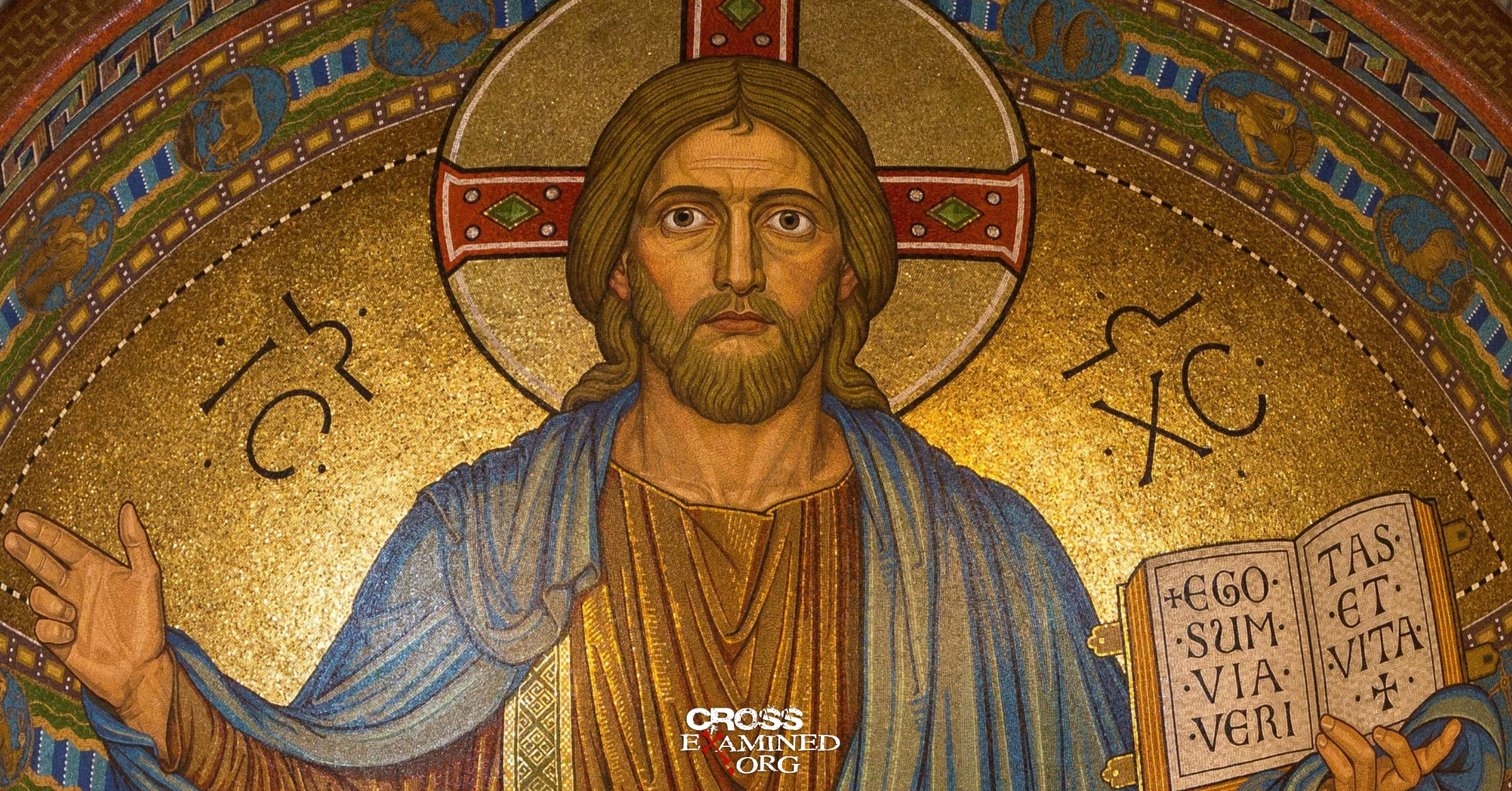Many issues that surround Christian apologetics are philosophical in nature. Thus, if we are going to be good apologists we need to be good philosophers. Evangelical apologists and philosophers typically follow the analytic tradition in philosophy, which seeks to answer individual questions or problems, but it lacks a systematic approach to philosophy. For example, instead of starting with a complete philosophical system from which to make sense of things, analytic philosophers tend to take issues individually without trying to connect them with other issues. A systematic approach tries to tie everything together. There are several weaknesses to taking such an aggregate approach to philosophy. One is that positions on certain issues have a tendency to become ad hoc (sort of made up as they go). A systematic approach is more complete and consistent.
Generally, systematic approaches start with metaphysics (one’s view of reality, what it means to be real, etc.). Without going into all of the underlying metaphysics, which would be another article (book!) in itself, I am going to argue that divine simplicity, which is born out of an Aristotelian metaphysics that was adapted for Christian theology by such thinkers as Thomas Aquinas, is a foundational starting point for our view of God but also offers invaluable help to the practice of Christian apologetics. (I have written an article explaining what divine simplicity is, so if you don’t know, you may want to read the article before proceeding.)
Divine Simplicity Strengthens Christian Apologetics in these Areas:
God’s Existence
When arguing for God’s existence, we are making philosophical claims and arguments. Natural science cannot lead us to God without using philosophical categories and moves. (See my article that argues philosophical arguments for God are better than “scientific” ones.) Those who hold to Aristotelian/Thomistic metaphysics argue that any God arrived at via theistic proofs that do not demonstrate a simple God does not arrive at God period. The reason is that the ultimate cause for all finite being cannot itself be caused, or it wouldn’t be the ultimate cause. There also can’t be an infinite regress of causes in this regard as that is tantamount to having no cause at all. Only a simple God is really God because only a simple God is not composed of parts that need to be put together.
Of course, the notion of divine simplicity doesn’t prove his existence, as that would be circular. My point is that a God that is composed is no God at all. Simplicity then is a conclusion arrived at via metaphysical demonstration regarding God’s existence. (See Thomas Aquinas’ First Way to see how this simple being that is pure existence, or Pure Act, is demonstrated.)
God-talk
If God is thus a simple being, he is very unique. In fact, there is nothing like him. Created being is not like uncreated being. The former is limited, changing, temporal, etc. (except for angels which are in a different category). God is unlimited, unchanging, and eternal. This means that the way we talk about God is not like how we talk about the things in the world. We can know the things in the world directly (for the most part). We know God indirectly through creation. As Paul says in Romans 1, we know about his invisible qualities via the visible creation. Thus, our knowledge of God is not direct, and we must understand that our language does not track him like it tracks the created world. So terms that are applied to creatures don’t mean the same thing when applied to God. In fact, in some ways, they don’t even mean the same thing when applied to other sensible things. For example, when I say something like “my cheeseburger is good,” “my shoes are good,” “my car is good,” or “John is good,” I don’t mean exactly the same thing by “good” in each statement. To be a good cheeseburger is different than to be a good pair of shoes, or car, or person. This is because the concept of “good” is contracted to the referent in question. In other words, the objects have different natures and when I say “x is good” I’m saying that x is a good example of what it means to be a part of that category of things. But the only way we can say something is good is by being able to know the nature of the thing in question. We know cheeseburgers, shoes, cars, and people. However, we don’t have such knowledge of the infinite, uncreated being of God. What does it mean to be a good God? Well, whatever it means, it doesn’t mean that God is good by doing something. He does not measure up to some standard in the way that humans do. To be a good human means that we act the way a human should act. But there is no such scenario with God if he is simple. Humans actualize a potential to be good or virtuous. But God exists necessarily if simplicity is true. He can’t actualize anything since that would make him composed and thus not simple. This way of talking and “knowing” God has profound effects on many issues, including how we understand his attributes, how he relates to us, and the problem of evil.
God’s Attributes
Divine simplicity is foundational for the rest of his attributes. If he is not simple, then he can change, be in time, be affected, etc. In other words, process theology would be true since God would be in a process. This is a flat denial, explicitly or implicitly, of classical/orthodox Christianity. If God is simple, then he is metaphysically perfect, eternal, unchanging, and impassible. Other areas, such as divine omnipotence and omniscience are influenced by simplicity. Whatever divine knowledge would be, if God is simple, then his knowledge could not be passive since that would mean that his knowledge is changing, which requires a composition of what he actually is as opposed to what he could be (e.g., learning new truths). Christian apologetics seeks to defend the traditional God of Christianity. A God of process theology is no such God.
Such a view of God also defends classical theism from views that are held by evangelicals and otherwise mainline Christians. For example, it is in vogue to argue that if God knows changing things like what is going on in the world, then his knowledge is changing and he is thus temporal, changeable, and possible. However, if God is simple, then such cannot be the case. But this view of knowledge supposes that God knows in roughly the same way that humans know. Humans have to “look outside” of themselves and passively receive sense impressions. However, if God is pure act, then he cannot receive anything or be changed in any way. It is this notion of God being a pure act that argues against the notion that God is a bystander just watching the world or creating it and letting it exist on its own apart from him. Such a view is deism. God does not stop being the cause of things after the come into existence. He is the sustaining cause and keeps them in existence. Thus, he doesn’t have to look outside himself in any way. He knows all of creation by knowing himself as the cause of all else that exists. Thus, to know something that is temporal does not make it such that his knowledge must be passive and temporal. Rather, his knowledge is active and even causative. Such distinctions change the contours of philosophical theology, which has an application in apologetics.
Problem of Evil
How can a good God allow evil? This is one of the hardest questions to answer, and it is also probably the most frequently asked question too. Much of the time the question of evil and suffering is brought up against God’s existence since it doesn’t seem like a good God could allow so much evil. One major aspect to this issue is what is known as theodicy, or the justification of God regarding evil. Most evangelicals seem to want to justify God in the face of evil and thereby offer some kind of theodicy. However, if God is simple and a completely different kind of being than humans, we should ask if God is, in fact, a being that can even be good in the moral sense. If he is not a moral being, then offering a theodicy to justify God is a waste of time and also wrongheaded. If simplicity is true, then God is metaphysically perfect in that he is a complete unlimited existence that lacks nothing; but he is not subject to moral standards. He transcends those types of categories. This does not solve every aspect of the problem of evil, but it should show that the argument that a good God wouldn’t allow evil is on the wrong track since God is not subject to moral categories. (See this article on why God is not a moral being and this article on how God is good.)
Conclusion
I hope I have demonstrated that divine simplicity is important not only to a correct philosophical theology but also to apologetics. There are many objections to divine simplicity. I have explained and responded to some of those objections here, so I won’t re-write that material. There are only two views of God: classical theism that maintains divine simplicity, and process theology that denies it.
Original Blog Source: http://bit.ly/2PzVkCO








